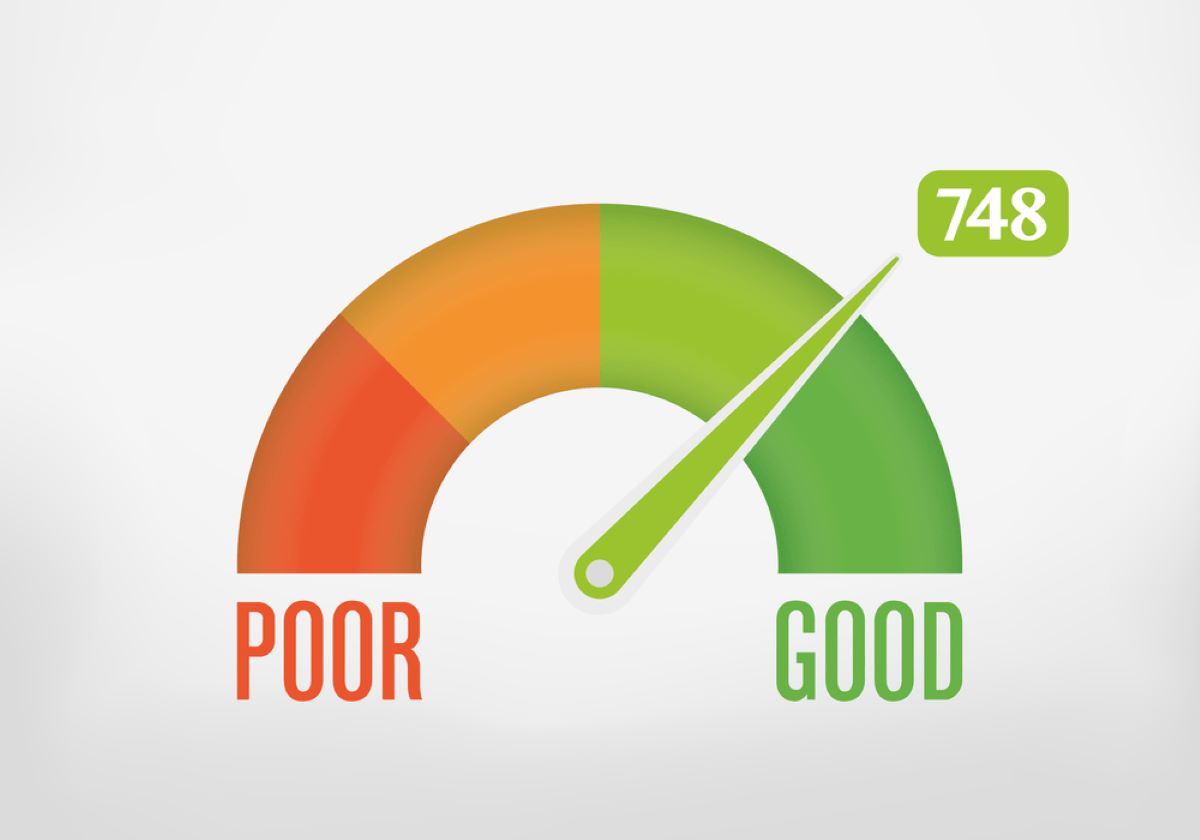

Finance
Why You Don’t Need A Financial Advisor
Modified: December 30, 2023
Discover why hiring a financial advisor may not be necessary. Take control of your finance and make informed decisions with these expert tips.
(Many of the links in this article redirect to a specific reviewed product. Your purchase of these products through affiliate links helps to generate commission for LiveWell, at no extra cost. Learn more)
Table of Contents
- Introduction
- Benefits of Not Having a Financial Advisor
- Saving on Costs and Fees
- Taking Control of Your Finances
- Learning Through Self-Education
- Avoiding Potential Conflicts of Interest
- Tailoring Your Financial Plan to Your Needs
- Building Financial Confidence and Empowerment
- Cons of Not Having a Financial Advisor
- Lack of Expertise and Knowledge
- Overwhelming Decision-Making Process
- Increased Responsibility and Time Commitment
- Potential for Costly Mistakes
- Limited Professional Network and Resources
- Conclusion
Introduction
When it comes to managing your finances, the traditional route has always been to seek the guidance of a financial advisor. However, times are changing, and there is a growing movement of people who question the necessity of hiring a financial advisor. You may be wondering, why would I forego professional guidance when it comes to something as crucial as my finances?
The truth is, not everyone needs or wants a financial advisor. With the availability of information and resources at our fingertips, many individuals are choosing to take a more hands-on approach to their money management. By educating themselves and making informed decisions, they believe they can achieve financial success on their own.
In this article, we will delve into the benefits of not having a financial advisor and explore why some individuals choose to navigate the world of personal finance independently. We will also discuss the potential drawbacks and considerations you should keep in mind if you decide to forego professional guidance.
Keep in mind that the decision to hire or not hire a financial advisor is a personal one, and what works for one person may not work for another. This article aims to provide you with insights into the different perspectives surrounding this topic, allowing you to make a more informed decision about managing your own finances.
Benefits of Not Having a Financial Advisor
Choosing not to have a financial advisor can offer several advantages to individuals who are willing to take on the responsibility of managing their own finances. Let’s explore some of these benefits in more detail:
- Saving on Costs and Fees: Hiring a financial advisor typically comes with fees and commissions, which can add up over time. By managing your own finances, you can save on these costs and potentially increase your overall investment returns.
- Taking Control of Your Finances: When you manage your own finances, you have the ultimate control over your money. You can make decisions based on your personal goals, risk tolerance, and financial situation without having to rely on someone else’s recommendations.
- Learning Through Self-Education: Taking charge of your finances allows you to develop a deeper understanding of how investing, budgeting, and financial planning work. Through self-education, you can equip yourself with valuable knowledge and skills that can benefit you for a lifetime.
- Avoiding Potential Conflicts of Interest: Financial advisors may have their own interests or biases that can cloud their recommendations. By managing your own finances, you can ensure that your decisions are free from any conflicts of interest.
- Tailoring Your Financial Plan to Your Needs: When you work with a financial advisor, they may provide a generic financial plan that may not align with your specific goals and priorities. By managing your own finances, you have the flexibility to create a personalized financial plan that caters specifically to your needs.
- Building Financial Confidence and Empowerment: By successfully managing your own finances, you can gain a sense of confidence and empowerment. This can have a positive impact on other areas of your life, as you feel more in control of your financial future.
It’s important to note that while these benefits are appealing, they may not be suitable for everyone. It requires a certain level of commitment, self-discipline, and willingness to expand your financial knowledge. Additionally, managing your own finances may not be ideal if you have a complex financial situation or lack the time to dedicate to thorough research and decision-making.
Now that we’ve explored the benefits of not having a financial advisor, let’s delve into the potential drawbacks and considerations that come with this approach.
Saving on Costs and Fees
One of the most immediate benefits of not having a financial advisor is the potential for savings on costs and fees. Financial advisors typically charge a percentage of the assets they manage or a fixed fee for their services. These fees can add up over time and eat into your investment returns.
By managing your own finances, you can eliminate these expenses and retain more of your hard-earned money. Instead of paying for professional advice, you can use those funds to invest or save for your future financial goals.
Furthermore, by not relying on a financial advisor, you have the freedom to choose low-cost investment options such as index funds or exchange-traded funds (ETFs). These investment vehicles often have lower expense ratios compared to actively managed mutual funds, reducing your overall investment costs.
However, it’s important to approach cost savings with caution. While managing your own finances may save you money in advisor fees, it’s crucial to consider the potential costs of making uninformed or ill-advised investment decisions. Without professional guidance, you may be more susceptible to making mistakes that could result in significant financial losses.
To mitigate this risk, it’s essential to invest time and effort in educating yourself about investing and personal finance. By learning about different investment strategies, asset allocation, and risk management, you can make informed decisions that align with your financial goals and risk tolerance.
Additionally, consider seeking out low-cost or free resources, such as books, online courses, or financial websites, to augment your financial knowledge. Utilize investment platforms that offer educational materials and research tools to make well-informed investment decisions.
Remember, the potential for cost savings should be balanced with the need for financial literacy and careful decision-making. Taking on the responsibility of managing your own finances requires a commitment to ongoing learning and staying up-to-date with market trends and financial news.
In the next section, we will explore another benefit of not having a financial advisor: taking control of your finances.
Taking Control of Your Finances
Managing your own finances allows you to have full control over your money and financial decisions. Instead of relying on a financial advisor’s recommendations, you can take charge of your financial destiny and tailor your strategies to align with your goals and values.
When you have a financial advisor, they may base their recommendations on their own investing philosophy, risk tolerance, or personal biases. While advisors may have expertise in their field, their recommendations may not always align with what you consider to be the best course of action for your financial future.
By managing your own finances, you have the freedom to make decisions based on your own financial objectives, risk appetite, and time horizons. You can create a customized investment strategy that suits your individual needs and preferences.
Taking control of your finances also means you can be more proactive in managing your investment portfolio. You can actively monitor your investments and adjust your asset allocation or investment holdings as needed. This hands-on approach can provide a sense of empowerment and engagement with your financial journey.
Furthermore, managing your own finances allows you to align your investment decisions with your values and beliefs. For example, if you are passionate about sustainable investing or supporting certain industries, you can directly invest in companies that reflect your values. You have the flexibility to build an investment portfolio that not only generates financial returns but also aligns with your personal principles.
However, it’s important to note that taking control of your finances requires a commitment to ongoing education and staying informed about market trends, economic indicators, and financial news. It’s crucial to dedicate time to research and analysis to make well-informed decisions.
While this sense of control can be empowering, it also means that you bear the consequences of your decisions. Investing in the stock market inherently involves risks, and decisions made without in-depth knowledge or research can lead to financial loss. It’s essential to approach your financial management with a realistic understanding of your capabilities and limitations.
In the next section, we will explore the benefits of self-education in managing your own finances.
Learning Through Self-Education
Choosing to manage your own finances offers an incredible opportunity for self-education and personal growth. By taking the initiative to learn about personal finance and investing, you can acquire valuable knowledge and skills that can benefit you throughout your lifetime.
When you have a financial advisor, they may provide recommendations and investment strategies, but you may not fully understand the rationale behind their decisions. By managing your own finances, you are forced to dive deeper into the world of personal finance, enabling you to develop a comprehensive understanding of topics such as budgeting, investing, retirement planning, and tax management.
Self-education allows you to make more informed decisions that align with your financial goals and risk tolerance. You can develop strategies that suit your unique circumstances and adapt them over time as your needs and priorities change.
The internet provides a wealth of resources for self-education, including blogs, forums, podcasts, and online courses. Many reputable financial websites offer guides and articles that cover a wide range of financial topics, making it easier to access information and learn at your own pace.
Additionally, books written by financial experts can provide valuable insights and knowledge. By reading books on investing, personal finance, and wealth management, you can gain different perspectives and deepen your understanding of financial concepts.
Beyond online resources and books, consider attending financial literacy workshops or seminars, whether virtual or in-person. These sessions can offer a structured learning environment and the opportunity to interact with experts and fellow participants, allowing you to ask questions and gain practical insights.
Self-education in finance not only provides you with the knowledge and skills to manage your own finances but also empowers you to make informed decisions in other areas of your life. You develop critical thinking skills, the ability to analyze data, and a better understanding of how the economy and markets work.
However, it’s important to approach self-education with a balanced mindset. While gaining knowledge is valuable, it’s essential to recognize the limits of your expertise. Financial markets are complex and ever-changing, and it’s wise to consult professionals or seek expert advice when faced with unfamiliar or intricate scenarios.
In the next section, we will discuss another benefit of not having a financial advisor: avoiding potential conflicts of interest.
Avoiding Potential Conflicts of Interest
When you manage your own finances, you can avoid potential conflicts of interest that may arise when working with a financial advisor. While financial advisors are professionals who are bound to act in their clients’ best interests, conflicts can still emerge due to various factors.
Financial advisors may receive commissions or incentives for recommending certain financial products or services. While these can be legitimate sources of income for advisors, they can also create conflicts of interest. There is always the possibility that an advisor’s recommendation may be influenced by these external factors rather than solely focusing on what is best for your financial situation.
By managing your own finances, you have the peace of mind of knowing that your decisions are not influenced by external factors or conflicted interests. You can make choices solely based on your own research, analysis, and personal financial goals.
However, it’s important to acknowledge that navigating the financial world independently may present challenges. Investing in certain asset classes or researching complex financial instruments can be overwhelming, especially if you lack the expertise or specialized knowledge in those areas.
One way to mitigate these challenges is to leverage technology and online platforms that provide unbiased information and tools to help you make informed decisions. Online investment platforms often offer access to a wide range of financial products, historical data, and research resources, giving you the ability to assess investment options objectively.
It’s also important to stay informed about financial regulations and laws that may impact your investments. Understanding the regulatory landscape can help you identify potential conflicts of interest in the financial industry and make informed decisions about the professionals or institutions you choose to work with.
By avoiding potential conflicts of interest, you can have greater confidence in the decisions you make regarding your finances. You have the freedom to evaluate investment options objectively and focus solely on what aligns with your financial needs and goals.
However, it’s crucial to keep in mind that conflicts of interest can arise in various forms, not just within the realm of financial advice. Companies or individuals may still attempt to influence your financial decisions in other ways, such as through marketing tactics or biased financial news. As a self-directed investor, it’s essential to stay vigilant and critically evaluate all information you encounter.
Next, we will explore how managing your own finances allows you to tailor your financial plan to your specific needs.
Tailoring Your Financial Plan to Your Needs
When managing your own finances, you have the unique advantage of being able to tailor your financial plan to your specific needs and goals. Without a financial advisor, you have the freedom to create a customized strategy that aligns with your unique circumstances.
Financial advisors often work with a wide range of clients and may provide generalized advice or pre-packaged financial plans. While these plans may be suitable for some individuals, they may not take into account your specific goals, risk tolerance, or time horizon.
By managing your own finances, you can thoroughly evaluate your financial situation and create a plan that addresses your specific needs. You have the flexibility to set individualized goals, such as saving for a down payment on a house, financing your child’s education, or planning for retirement.
Addtionally, you can choose investment strategies and products that align with your risk tolerance and investment preferences. For example, if you prefer a conservative approach, you can allocate more of your portfolio to lower-risk investments such as bonds or cash equivalents. However, if you have a higher risk tolerance and are looking for potentially higher returns, you can allocate a larger portion to equities or other growth-oriented investments.
Managing your own finances also allows you to adapt your financial plan as your circumstances change. Life events, such as marriage, childbirth, job changes, or a significant inheritance, may require adjustments to your financial strategy. Having full control over your financial plan enables you to make timely and appropriate changes to accommodate these life changes.
However, it’s important to recognize that tailoring your financial plan to your needs requires careful evaluation and analysis. It can be helpful to periodically review your financial goals and progress to ensure that your plan is still aligned with your aspirations.
Utilize financial planning tools and resources to help you assess your financial situation, project future scenarios, and identify any gaps or areas for improvement. Regularly monitor your investment performance, track your expenses, and adjust your savings and income strategies as needed.
Additionally, seek out educational resources and expert opinions to ensure your financial plan is comprehensive and well-informed. Consider consulting professionals or working with a fee-only financial planner on an as-needed basis to gain insights and guidance for complex financial decisions.
Creating a tailored financial plan empowers you to have full control over your financial future and helps you align your financial strategies with your personal goals and priorities.
Lastly, we will explore the benefits of building financial confidence and empowerment through managing your own finances.
Building Financial Confidence and Empowerment
Managing your own finances can provide a significant opportunity to build financial confidence and empower yourself in making informed decisions. Taking control of your financial journey allows you to develop a deeper understanding of your finances, which can boost your overall financial confidence.
As you navigate the world of personal finance, you gain knowledge and experience that can help you make well-informed decisions about saving, investing, and budgeting. This increased understanding not only benefits your current financial situation but also equips you with valuable skills that can positively impact your long-term financial well-being.
Building financial confidence gives you the ability to take charge of your financial future and make choices that align with your values and goals. You can actively engage in financial conversations, ask educated questions, and contribute to discussions about investments or financial strategies.
Additionally, taking control of your finances empowers you to overcome any fear or uncertainty associated with money. By actively managing your own finances, you become more aware of your financial habits, strengths, and areas for improvement.
Moreover, as you see the results of your financial decisions and witness your progress towards your goals, you develop a sense of accomplishment and increased self-assurance in managing your money. This empowerment translates into other areas of your life, as you become more confident in making critical decisions and taking calculated risks.
However, it’s important to recognize that building financial confidence takes time and effort. It requires continuous learning, staying informed about financial markets, and monitoring your financial progress. It’s essential to remain patient and embrace the learning process, knowing that each step you take towards financial empowerment brings you closer to your goals.
Seek out opportunities to enhance your financial knowledge and skills. Attend seminars, workshops, or webinars that focus on personal finance, investing, or wealth management. Engage in discussions with peers or join online communities where you can exchange ideas and learn from others with similar financial goals.
Additionally, celebrate your financial wins, no matter how small. Each successful financial decision or milestone reached is a step towards greater financial confidence. Reflect on your achievements and use them as motivation to continue on your path towards financial empowerment.
Ultimately, building financial confidence and empowerment through managing your own finances allows you to take control of your future and shape the financial life you desire.
To conclude, while there are undeniable benefits to not having a financial advisor, it’s important to weigh these against the potential drawbacks and considerations. The decision to manage your own finances should be based on your personal circumstances, financial knowledge, and comfort level with taking on the responsibility.
By being aware of the benefits and challenges, you can make an informed choice that aligns with your financial goals, values, and personal preferences.
Cons of Not Having a Financial Advisor
While there are benefits to managing your own finances, it’s important to consider the potential drawbacks and challenges that come with not having a financial advisor. Let’s explore some of the cons below:
- Lack of Expertise and Knowledge: Managing your own finances requires a significant amount of knowledge and expertise in various areas such as investing, tax planning, and retirement strategies. Without a financial advisor, you may need to invest more time and effort in learning these complex concepts on your own.
- Overwhelming Decision-Making Process: Making financial decisions without professional guidance can feel overwhelming, especially when faced with complex investment options or navigating through volatile markets. You bear the sole responsibility of researching and analyzing different investment choices, which requires time and effort.
- Increased Responsibility and Time Commitment: Managing your own finances means taking on the full responsibility of monitoring and adjusting your investments. This requires time and dedication to stay informed about market trends, economic indicators, and financial news that may affect your financial decisions.
- Potential for Costly Mistakes: Without a financial advisor’s expertise, there is an increased risk of making costly investment mistakes. Lack of experience or emotional decision-making may lead to poor investment choices or timing, which can have long-term financial consequences.
- Limited Professional Network and Resources: Financial advisors have access to extensive professional networks, research tools, and resources that can provide valuable insights and opportunities. Without their network, you may have limited access to certain investments or financial products.
It’s important to note that the cons mentioned above can be mitigated through dedicated self-education, leveraging online resources, and seeking advice from other financial professionals when needed. While managing your own finances requires additional responsibility and commitment, it can be a rewarding journey if approached with the right mindset and dedication to continual learning.
Ultimately, the decision to have or not have a financial advisor depends on your individual financial situation, goals, and level of comfort with managing your finances independently. Consider your financial knowledge, the complexity of your financial situation, and your ability to dedicate time and effort towards learning and decision-making.
Now that we have explored both the benefits and potential drawbacks of not having a financial advisor, you can make an informed decision based on your unique circumstances and financial goals.
Lack of Expertise and Knowledge
One of the significant challenges of managing your own finances is the potential lack of expertise and knowledge in various aspects of personal finance. Without a dedicated financial advisor, you may need to invest more time and effort into educating yourself on topics such as investing, retirement planning, tax strategies, and risk management.
Financial advisors are professionals who undergo rigorous training and often hold certifications or designations that demonstrate their expertise in the field. They have extensive knowledge and experience in navigating the complexities of the financial markets and can provide valuable insights and guidance tailored to your specific needs.
Without their expertise, there is a higher risk of making uninformed decisions or falling prey to common financial pitfalls. Investing without a deep understanding of the markets, for example, can lead to poor investment choices, excessive risk exposure, or missed opportunities. Lack of knowledge in tax planning may result in missed deductions or inefficient tax strategies.
However, it’s important to highlight that the lack of expertise and knowledge can be addressed through dedicated self-education and seeking guidance from reliable sources. There are numerous resources available, such as books, online courses, and financial websites, that can help you develop a solid foundation in personal finance.
Consider attending seminars or workshops that focus on specific financial topics, or joining online communities where you can learn from others’ experiences and gain insights from experts in the field. Engaging with financial literature and staying informed about current market trends are also effective ways to enhance your knowledge and make better-informed decisions.
Additionally, when managing your own finances, it may be beneficial to consult with other professionals, such as accountants or estate planning attorneys, who can provide specialized expertise in their respective areas. This can ensure that you have a well-rounded approach to managing your financial affairs.
While the lack of expertise and knowledge can present a challenge, it’s important to view it as an opportunity for personal growth and development. Taking the initiative to educate yourself about personal finance can empower you with the knowledge and confidence to make better financial decisions.
Ultimately, the key is to strike a balance between building your financial knowledge and seeking professional guidance when needed. By continuously expanding your expertise, you can better navigate the complexities of personal finance and make informed decisions that align with your goals and values.
Next, we will discuss another potential drawback of not having a financial advisor: the overwhelming decision-making process.
Overwhelming Decision-Making Process
One of the challenges of managing your own finances is the potentially overwhelming decision-making process. Without the guidance of a financial advisor, you bear the sole responsibility of making all financial decisions, which can feel daunting, especially in complex and volatile financial markets.
The decision-making process encompasses various aspects of personal finance, including investment choices, asset allocation, rebalancing, tax planning, and risk management. Each decision requires careful consideration, analysis, and evaluation of multiple factors.
Investment decisions, for example, can be overwhelming due to the wide array of options available. Without a financial advisor to provide personalized recommendations, you may find yourself sifting through an extensive list of investment vehicles, trying to assess their risk-return profile, historical performance, and suitability for your financial goals.
Moreover, emotional biases can also affect decision-making. Market volatility or investment losses can trigger fear or panic, leading to impulsive decisions that may not align with your long-term financial goals. Without the expertise and objective perspective of a financial advisor, it may be challenging to navigate these emotional pitfalls and make rational financial decisions.
However, it’s essential to acknowledge that decision-making skills can be developed and improved over time. By actively seeking knowledge and understanding of financial concepts, you can develop a solid foundation for informed decision-making.
Take the time to research and educate yourself about investment strategies, risk management techniques, and financial principles. Leverage online tools and resources that provide insights into various investment options and help you analyze your portfolio’s performance and asset allocation.
It can also be helpful to establish a disciplined decision-making process. Set clear criteria for your investment choices, such as assessing the risk profile, historical performance, and expense ratios of different investments. Develop an investment plan that aligns with your financial goals and risk tolerance and stick to it even during periods of market volatility or emotional uncertainty.
While navigating the overwhelming decision-making process may be challenging at first, remember that it can also be an opportunity for personal growth and empowerment. By taking an active role in your financial decisions, you can gain valuable experience and confidence in managing your finances.
Lastly, don’t hesitate to seek advice or opinions from other trusted sources. Engage in discussions with family members, friends, or colleagues who have expertise in finance or consult with professionals who can provide specialized guidance in specific areas, such as tax planning or retirement strategies.
By approaching the decision-making process with a structured approach and continuously expanding your knowledge, you can navigate the complexities of managing your own finances effectively.
Next, we will discuss the increased responsibility and time commitment involved in managing your own finances.
Increased Responsibility and Time Commitment
Managing your own finances requires assuming increased responsibility and dedicating a significant amount of time to effectively monitor and make decisions regarding your financial affairs. Without a financial advisor to rely on, you become solely responsible for various financial tasks, which can be time-consuming and demanding.
First and foremost, you need to dedicate time to educate yourself on financial concepts, stay updated with market trends, and understand the implications of different financial decisions. This self-education process involves reading books, articles, and following reputable financial sources to enhance your financial knowledge.
Additionally, managing your own finances involves actively monitoring and evaluating your investment portfolio. You need to stay informed about the performance of your investments, track market trends, and make adjustments when necessary. This requires ongoing research, analysis, and decision-making to ensure your investments align with your goals and risk tolerance.
Furthermore, you need to allocate time to budgeting and cash flow management. This includes tracking your expenses, managing debt, and ensuring your financial resources are allocated efficiently to meet your financial obligations and goals.
Managing your own finances also entails staying up to date with changing tax laws and regulations. You need to understand the tax implications of your investment decisions, devise tax-efficient strategies, and ensure compliance with tax filing requirements. This can be time-consuming, particularly if your financial situation is complex or involves multiple income sources.
It’s important to recognize that managing your finances effectively requires discipline and organization. Establishing a routine to review and manage your finances on a regular basis can help optimize your time. Set specific days or times each month to evaluate your investments, review your budget, and address any financial concerns or opportunities.
It’s also crucial to leverage technology and automation tools to streamline routine financial tasks. Utilize budgeting apps or software to track your expenses, automate bill payments, and set up automatic investment contributions. These tools can free up time and allow you to focus on more strategic financial planning and decision-making.
However, it’s essential to note that even with the best intentions and efforts, managing your finances can still be time-consuming, especially if you have a complex financial situation or limited familiarity with financial concepts. In such cases, you may consider seeking guidance from professionals on specific areas such as tax planning or retirement strategies.
Ultimately, the increased responsibility and time commitment of managing your own finances can be outweighed by the potential for financial growth, satisfaction, and empowerment. By taking control of your financial affairs, you have the opportunity to shape your financial future according to your goals and values.
In the next section, we will discuss another potential drawback of not having a financial advisor: the potential for costly mistakes.
Potential for Costly Mistakes
Managing your own finances comes with the inherent risk of potentially making costly mistakes. Without the expertise and guidance of a financial advisor, you may be more susceptible to making uninformed or ill-advised financial decisions that could have long-term financial implications.
Investing without a deep understanding of the markets and investment principles can lead to poor investment choices, inadequate diversification, or excessive risk exposure. Making decisions based on emotions or impulse, especially during market volatility, can result in buying or selling investments at unfavorable prices.
Additionally, managing your own finances requires staying informed about current market trends, economic indicators, and financial news. Failure to keep up-to-date with relevant information can lead to missed opportunities or ill-timed investment decisions.
Furthermore, tax planning mistakes can be especially costly. Failing to navigate the intricacies of tax laws and regulations can result in missed deductions, late filings, or incorrect tax calculations. These errors can lead to penalties and missed opportunities to optimize your tax position.
One of the potential pitfalls of self-managing finances is overconfidence. It’s crucial to recognize the limitations of your knowledge and expertise. Overestimating your abilities may lead to overallocating to risky investments or ignoring necessary diversification, exposing your portfolio to unnecessary risk.
To mitigate the potential for costly mistakes, it’s essential to invest time and effort in ongoing education. Continuously expand your knowledge of personal finance, investing, tax planning, and other relevant areas. Stay informed about market trends, economic indicators, and regulatory changes that may impact your financial decisions.
Utilize research tools and financial resources to aid in your decision-making process. Stay disciplined in your investment approach, focusing on long-term goals rather than short-term market fluctuations. Consider consulting with professionals or seeking advice from reputable sources when facing complex financial situations or unfamiliar territory.
Furthermore, developing a clear and disciplined investment strategy can help mitigate the potential for costly mistakes. Set specific investment criteria, diversify your portfolio, and regularly review and rebalance your investments in line with your goals and risk tolerance.
It’s also important to recognize that mistakes are a part of the learning process. While costly mistakes may be disheartening, they can provide valuable lessons and opportunities for growth. Use these experiences as a catalyst for improving your financial decision-making and adjusting your strategies accordingly.
By being aware of the potential pitfalls and investing in continuous education and self-reflection, you can minimize the risk of making costly mistakes, helping to safeguard your financial future.
Lastly, we will discuss another potential drawback of not having a financial advisor: limited professional network and resources.
Limited Professional Network and Resources
One of the potential drawbacks of managing your own finances is the limited access to a professional network and resources that a financial advisor can provide. Financial advisors possess extensive networks, connections, and access to specialized resources that can bring valuable insights and opportunities to their clients.
Financial advisors often have relationships with other professionals such as tax accountants, estate planning attorneys, or insurance agents. These connections can be beneficial when you need specialized advice or guidance in specific areas of your financial life. It can be challenging to cultivate such relationships and gain access to the same level of expertise and support on your own.
Moreover, financial advisors often have access to comprehensive market research, analysis tools, and reports that may not be easily accessible to individual investors. They can provide valuable insights and up-to-date information to help inform your financial decisions.
Financial advisors can also offer guidance in navigating complex financial situations or unique investment opportunities. They have experience in dealing with various financial scenarios and can provide tailored advice based on your specific circumstances and goals.
However, it’s important to note that limited access to a professional network and resources does not mean you are unable to make informed decisions. There are alternative ways to gain information and access resources to support your financial decision-making.
Utilize online resources, financial publications, and reputable financial websites to stay informed about market trends and access educational material. Join online communities or forums where you can engage with knowledgeable individuals and exchange insights and opinions.
Take advantage of financial planning and investment platforms that offer access to research tools, educational content, and customer support that can help supplement your knowledge and provide additional resources.
Investing time in building your own professional network can also prove beneficial. Attend financial seminars, join industry-related organizations, or participate in local community events where you can meet and connect with professionals in related fields.
Additionally, when needed, consider consulting with professionals in specific areas. Engage with tax accountants, estate planning attorneys, or insurance agents individually to obtain specialized advice. While this may require extra effort and cost, it allows you to tap into their expertise when necessary.
While managing your own finances may limit your access to an extensive professional network, it should not deter you from taking control of your financial affairs. With resourcefulness, proactive research, and strategic networking, you can bridge certain gaps and ensure you are making well-informed decisions.
Next, we will conclude the discussion by summarizing the key points and considerations for managing your own finances without a financial advisor.
Conclusion
The decision to manage your own finances without a financial advisor is a personal one that requires careful consideration of the benefits and drawbacks. While there are advantages to taking control of your financial journey, it’s important to acknowledge the potential challenges that come with this responsibility.
By not having a financial advisor, you can save on costs and fees, take full control of your finances, and enhance your financial knowledge through self-education. Avoiding potential conflicts of interest and tailoring your financial plan to your needs are additional benefits that can empower you to create a personalized and aligned financial strategy.
However, there are also potential cons to consider. Lack of expertise and knowledge, the overwhelming decision-making process, increased responsibility and time commitment, potential for costly mistakes, and limited access to a professional network and resources are some of the challenges that can arise when managing your own finances.
Ultimately, the decision should be based on your individual circumstances, financial knowledge, and comfort level with managing your finances independently. It’s important to invest in ongoing education, stay informed about market trends, and leverage resources and tools to support your financial decision-making.
Additionally, seeking advice from professionals in specific areas, cultivating a network of knowledgeable individuals, and staying disciplined in your approach can help mitigate potential drawbacks and enhance your ability to make informed decisions.
Remember that managing your own finances entails responsibility, discipline, and continuous learning. It requires staying proactive, adapting to changes, and seeking guidance when needed. Balancing self-reliance with the recognition of your limitations is key to navigating the complexities of personal finance.
Ultimately, whether you choose to have a financial advisor or manage your own finances, the goal is to achieve financial well-being and align your financial decisions with your goals and values. By carefully evaluating your options and making informed decisions, you can set yourself on the path to financial success and a secure future.














